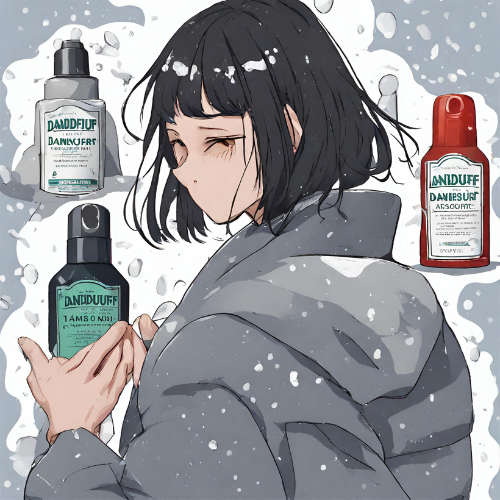How to Manage Dandruff: Practical Tips for a Flake-Free Scalp
Dandruff, characterized by flaky, itchy scalp and sometimes embarrassment, is a common condition that affects many individuals. While it’s not usually a sign of poor hygiene, it can be bothersome and persistent if left untreated. In this guide, we’ll explore practical tips and strategies for managing dandruff effectively and achieving a healthier, flake-free scalp.
Understanding Dandruff: Dandruff is a chronic scalp condition characterized by the shedding of dead skin cells from the scalp. It often presents as white or yellowish flakes on the scalp and shoulders, accompanied by itching and irritation. While the exact cause of dandruff is not fully understood, factors such as yeast overgrowth, sebum production, and individual susceptibility may contribute to its development.
Tips for Managing Dandruff:
- Use Anti-Dandruff Shampoos:
- Look for shampoos specifically formulated to treat dandruff, containing active ingredients such as zinc pyrithione, selenium sulfide, ketoconazole, or coal tar.
- Use the anti-dandruff shampoo regularly, following the instructions on the label. Massage the shampoo into the scalp, allowing it to sit for a few minutes before rinsing thoroughly.
- Maintain Good Hair and Scalp Hygiene:
- Wash your hair regularly with a gentle shampoo to remove excess oil, dirt, and dead skin cells from the scalp.
- Avoid using hot water, as it can strip the scalp of its natural oils and exacerbate dryness and flakiness.
- Limit the Use of Hair Products:
- Minimize the use of styling products such as gels, mousses, and hairsprays, as they can contribute to product buildup and worsen dandruff.
- Choose hair care products labeled “non-comedogenic” or “non-acnegenic” to reduce the risk of clogging hair follicles and exacerbating dandruff.
- Practice Stress Management:
- Stress can exacerbate dandruff symptoms, so incorporate stress-reducing activities such as meditation, yoga, deep breathing exercises, or regular physical activity into your routine.
- Maintain a Balanced Diet:
- Eat a balanced diet rich in fruits, vegetables, whole grains, lean proteins, and healthy fats to support overall scalp health and reduce inflammation.
- Stay Hydrated:
- Drink an adequate amount of water daily to keep your scalp and skin hydrated, which can help prevent dryness and flakiness.
- Consider Natural Remedies:
- Some individuals find relief from dandruff symptoms by using natural remedies such as tea tree oil, apple cider vinegar, or aloe vera gel. However, these remedies may not be suitable for everyone, so consult with a healthcare professional before trying them.
- Seek Medical Advice if Necessary:
- If over-the-counter dandruff treatments do not improve your symptoms or if you experience severe itching, redness, or inflammation of the scalp, consult a dermatologist for further evaluation and treatment recommendations.
Conclusion: Managing dandruff requires a combination of proper hair and scalp hygiene, regular use of anti-dandruff shampoos, stress management, and a balanced diet. By incorporating these practical tips into your daily routine and seeking appropriate medical advice when needed, you can effectively manage dandruff and enjoy a healthier, flake-free scalp. Remember, consistency is key, so stick with your dandruff management routine for best results.




